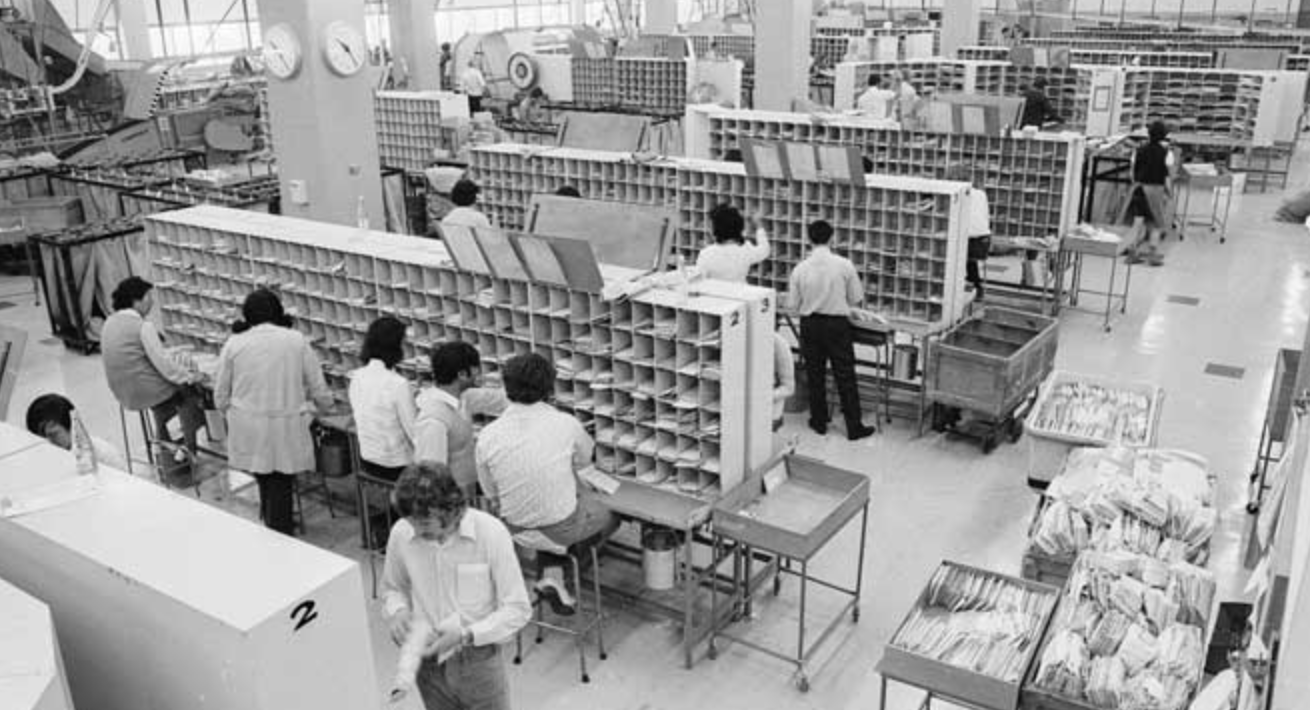
Why would we need a mailroom, I hear you say. The reason is simple: the mailroom wasn’t really about the mail. Sure, it was the place where the mail was sorted, sent and delivered, but ironically, it delivered much more than that.
The mailroom was really a place that served lots of important, and since lost, functions for many big organisations. Firstly, the mailroom was an entry point. It was a place where people could enter a large and respected organisation with few formal qualifications. It was a classic back door entry into what we might call a restricted building. It was a way in, especially for those who didn’t fit the mould or thrive in a traditional schooling environment. They could find a way in, forge relationships, learn about the business from the ground up, pay attention, hear the whispers in the hallway and learn about the business actually in the metaphorical trenches. It was a quasi-business apprenticeship model.
Now, you might be thinking, “Oh well, it doesn’t make that much difference, because there are still plenty of youngsters to choose from in pretty much every industry.” Let’s add that all too often, today’s youngsters are over-qualified for the first jobs of their careers. But here’s where this entry point differs. It attracts a different type of a person. A person who comes from a different path and who might have a way of learning that’s different to traditional graduates. A different way of seeing the world. Perhaps less academically inclined but with a different kind of smarts. They may have learned kinesthetically, been better at observing interpersonal dynamics and understanding how politics plays out at work. You might have even met a great leader who came via the non-traditional path. I have, more than once.
One person I know who entered this way is the best leader I’ve ever worked with. Smart, strategic, considerate, empathic – this person has it all and he started in the mailroom of an advertising agency. I’m not even sure if he finished secondary school. Today, he runs a multi-billion dollar business in Australia. He’s different to most other leaders I’ve met, who have taken a more traditional path via formal education. I put it down to the mailroom being very different to the textbook. While we are, importantly, increasing the diversity of people in organisations, we are ironically decreasing the diversity of their arrival journey.
Over the past 20 years, slowly but surely, entry level administrative jobs have evaporated. First it was the typing pool, then the mailroom, and today, only the most senior executives are afforded any kind of administrative assistance. Yep, we send our own mail – mostly electronically and the occasional FedEx. While that’s not necessarily bad – it has left a significant non-mail related gap in organisations. Maybe it’s time we imagined a new kind of ‘mailroom’.

